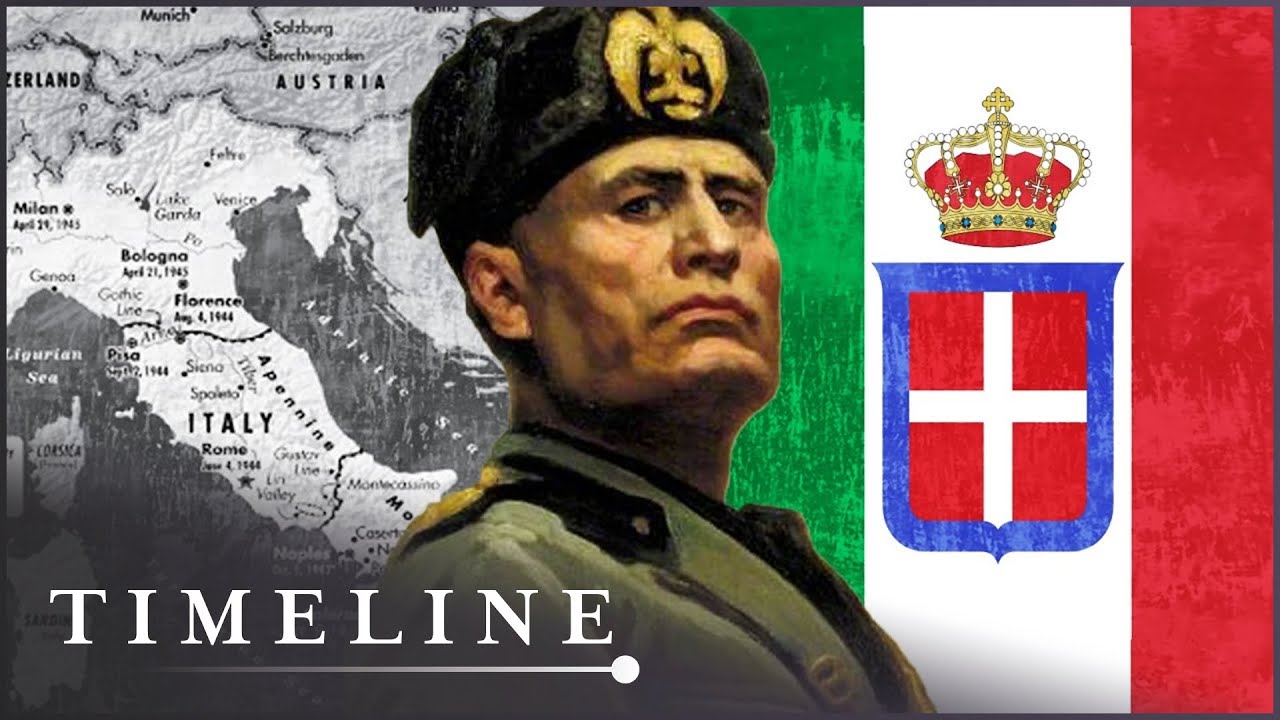Benito Mussolini, known as “Il Duce,” rose to power in Italy in 1922 and established the fascist regime that would rule the country until 1943. Mussolini’s Italy was a unique blend of nationalism, corporatism, and authoritarianism, and it became one of the most important players on the world stage in the years leading up to World War II.
Mussolini’s rise to power was a result of a combination of factors, including Italy’s economic and political instability in the aftermath of World War I, his charismatic personality, and the support of powerful conservative elites. Mussolini’s fascist party, known as the National Fascist Party, grew in popularity in the early 1920s, and in 1922, Mussolini led a “March on Rome” to demand that he be appointed Prime Minister. King Victor Emmanuel III, fearing a civil war, appointed Mussolini as Prime Minister and allowed him to establish a fascist dictatorship.
Once in power, Mussolini established a totalitarian regime that was characterized by strict censorship, propaganda, and the suppression of political opposition. He also pursued an aggressive foreign policy, seeking to expand Italy’s influence and territory in Europe and Africa. Mussolini’s vision of a new Roman Empire led to the invasion of Ethiopia in 1935, which was condemned by the League of Nations but ultimately successful.
The success of Mussolini’s regime was due in part to the support of a network of shadowy figures who protected and supported him. The “Blackshirts,” a paramilitary organization that was loyal to Mussolini, helped to suppress opposition and intimidate his enemies. The OVRA, Mussolini’s secret police force, was responsible for arresting and imprisoning political dissidents and suspected enemies of the state.
Mussolini’s relationship with Nazi Germany was complex and often fraught. While the two regimes shared a fascist ideology, they also had conflicting interests and goals. Mussolini was initially skeptical of Hitler’s rise to power and was reluctant to form an alliance with him. However, as Hitler’s power grew and Mussolini faced increasing isolation in Europe, he turned to Germany for support. The two regimes formed the Axis powers in 1936, and Italy’s support was critical to Germany’s early military successes in World War II.
Despite its early successes, Mussolini’s Italy was ultimately doomed to fail. The country suffered from economic and military weakness, and Mussolini’s aggressive foreign policy led to a disastrous involvement in World War II. Italy’s military campaigns in North Africa and Greece were unsuccessful, and the country suffered heavy losses. In 1943, Mussolini was overthrown by his own government, and Italy switched sides in the war.
It is difficult to say with certainty what Italy would be like without Mussolini and his fascist party, as it is difficult to predict how events would have unfolded differently. However, we can make some educated guesses based on the political and social climate of Italy at the time.
Before Mussolini’s rise to power, Italy was a country that was struggling with economic and political issues. The country had just emerged from World War I, and the economy was in a state of turmoil. In addition, there was widespread social unrest, with workers and peasants demanding better wages and working conditions.
Without Mussolini and his fascist party, it is possible that Italy would have continued to struggle with these issues. However, it is also possible that a different political movement could have emerged to address these problems. It is worth noting that Mussolini was not the only political figure in Italy at the time who was advocating for radical change. There were also socialist and communist movements that were gaining support among the working class.
If a different political movement had come to power in Italy, it is possible that the country would have taken a different path. For example, a socialist or communist government may have implemented policies aimed at improving the lives of workers and peasants. This could have included things like higher wages, better working conditions, and greater access to education and healthcare.
It is also possible that without Mussolini and his fascist party, Italy would have been less aligned with Nazi Germany during World War II. This could have had a significant impact on the outcome of the war, as Italy’s involvement was instrumental in some of the key battles and campaigns.
Ultimately, it is impossible to say for certain what Italy would be like without Mussolini and his fascist party. However, it is clear that his rise to power had a significant impact on the country, both during his time in office and in the years that followed. Without Mussolini and his regime, Italy may have taken a very different path, for better or for worse.
In conclusion, Mussolini’s Italy was a unique and complex fascist regime that played an important role in the history of Europe and the world. Its rise to power was a result of a combination of factors, including economic and political instability, the charismatic leadership of Mussolini, and the support of powerful conservative elites.
The shadowy figures who protected and supported Mussolini played a critical role in the success of his regime. The tenuous Axis relationship with Nazi Germany was marked by conflicting interests and goals. Ultimately, Mussolini’s aggressive foreign policy and military weakness led to the downfall of his regime and Italy’s disastrous involvement in World War II.


